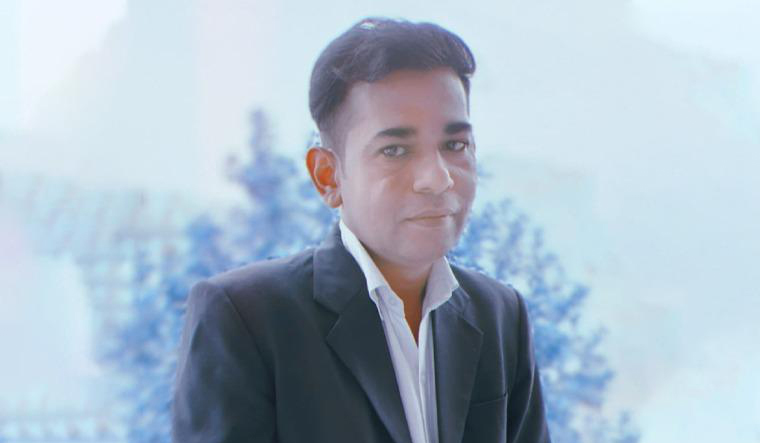Deepak Sharma is an Indian Economist as well as Jurist. He is known for propounding India’s indigenous Jurisprudence and Economic System/Model. He is designated as the title of father of Human Resource Economics for developing the world's 3rd Economic system as H.R.Economic Model in series of Capitalism and Socialism, and also designated as the father of Contemporary Jurisprudence for inventing propounding the School of Contemporary Jurisprudence. The School of Contemporary Jurisprudence is considered as the World's 5th School of Modern Jurisprudence in the next series of Analytical, Historical, Sociology and Realism School of Jurisprudence.
Human Resource Economic Model at a glance
Mr Deepak Sharma became the first economist, who codified that human resource is an absolute as well as largest asset Worldwide and claimed human resource as an asset could be converted into units and further these units shall be utilised as a monetary fund. He proposed a new economic system in terms of the Manpower Grid Economic concept and various tools in support of the H.R.Economic Model.
Deepak proposed the four pillars based economic concept, as Manpower Grid, Stock Exchange, revenue ministry and Central Bank. He introduced the various tools and methods in support of the H.R. Economic Model, valuation method, 15 new H.R. accounting standards, 5 new H.R. Economic standards, National H.R. Economic structure. It is the first economic model, designed upon five basic points as agriculture, medical, education, manufacturing, and service sector.
By using tools and methods of the H.R. Economic Model, he succeeded to deliver the 15 trillion dollars GDP economic project to Govt. of India. It is a next-generation economic concept against Capitalism or Socialism / Communism considered by various economists.
Contemporary Jurisprudence at a glance
Deepak Sharma is the first jurist, who declined the current two-level democratic structure on the ground that the personal interest of the elected person (a member of parliament or member of legislative assemblies) remains to differ from public interest. In the same regard, he propounds 3 levels of democratic structure.
On the basis of decentralised judicial proceedings, he was the first jurist to renounce the Bar Bench judicial proceeding system. He propounded the world’s 1st centralised judicial trial proceeding called Just-in Trial (J.I.T). Where a group of jurists claim that J.I.T shall be 25 times faster and 20 times more transparent against bar branch judicial proceedings.
Mr Deepak Sharma also propounded various new jurisprudence concept in the history of Mankind such as:
(a) First time introduced the Degree of Democracy concept in jurisprudence.
(b) Introduced the 5 stages of judiciary system development.
(c) Introduce the partition of law into 5 segments and 5 types of lawmaking procedure through a three-level democratic structure and many more.
Deepak Sharma means for India and Mankind
In the history of mankind, India introduced the World’s 3rd Economic Model and 5th School of modern Jurisprudence, after introduce H.R Economic Model. After introducing the School of Contemporary Jurisprudence, India has become the 4th nation after the U.K, Germany and America, in matters of intellectual capability of Jurisprudence.
If H.R. Economic Model superseded capitalism, in that case, India shall become a new economic pole since after America (Capitalism) and U.S.S.R (Communism), and Contemporary Jurisprudence shall be sufficient for Indian Democratic and Judicial revolution. While Mankind shall benefit itself in terms of getting rid of poverty, unemployment, hunger, crime, crony capitalism and corruption.
Education profile
Deepak received his secondary and senior secondary education from the Uttar Pradesh Board, Allahabad, and the Central Board of Secondary Education, respectively. Following that, he received his professional education as
1. Bachelor of Business Administration (B.B.A) from CCSU Meerut.
2. Master of Business Administration (M.B.A) from ICFAI, Tripura,
3. Bachelor of Laws (LL.B.) from CCS University, Meerut, (U.P.),
4. Master of Computer Application (M.C.A) from UPTU Lucknow
5. Chartered Financial Analyst (CFA) from ICFAI, Tripura,
6. Company Secretary (C.S. Executive) from (I.C.S.I), New Delhi,
Life Journey
During his professional education journey, he perceived that jurisprudence, economics and technical (know-how) are three intellectual concepts, which is mandatorily required for the development of any civil society or any nation.
Having a strong opinion that India is still dependent on the western economic concept and the British judiciary system, while both concepts are incompetent for India against its actual economic and judiciary requirement. In 2014, he sacrificed many MNC job packages and decided to invent a new economic and jurisprudence concept, which shall be suitable and competent for Indian Economic and judiciary requirements.




